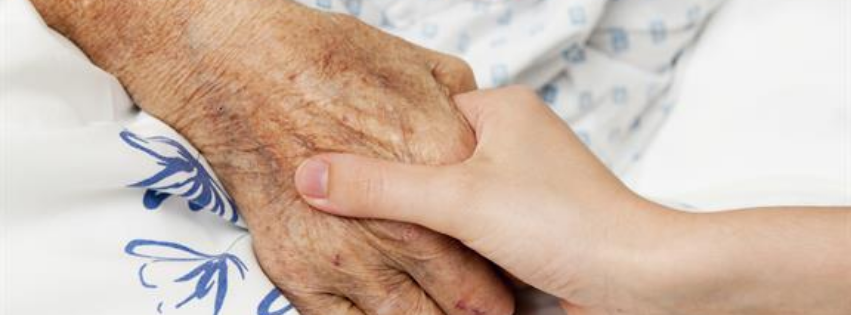Bedrift
Helse Sør-øst RHFSøknadsfrist
19.05.2024Heltid/Deltid
HeltidAnsettelsesform
FastBransje
Offentlig forvaltningUtdanningskrav
PåkrevetArbeidserfaring
ØnskeligAdresse
0455, OSLO
OSLO
Antall stillinger
1karriere-kode
5728401Se her for andre jobber fra Helse Sør-øst RHF


Helse Sør-øst RHF
Postdoctor in statistics/bioinformatics
Offentlig forvaltning
The Department of Medical Genetics at Oslo University Hospital is Norway’s largest medical genetics department with over 200 employees. The department is responsible for diagnostics of rare and inherited diseases, and runs a national research infrastructure for high-throughput DNA sequencing at the Norwegian Consortium for Sequencing and Personalized Medicine (www.norseq.org). The research section in the department has 7 research groups (www.ous-research.no/meg/) working in various fields of medical genetics, including breast cancer, the genetics of autoimmune, neurological, cardiovascular and psychiatric disorders, epigenetics causes of disease, as well as groups focusing on bioinformatics.
The Department of Medical Genetics invites applications for a position as a Postdoc in the field of genetics/epigenetics, starting on 1st June 2024 or as soon as possible thereafter. The project is part of a close collaboration with the Centre for Fertility and Health (CeFH), a Centre of Excellence funded by the Norwegian Research Council, at the Norwegian institute of Public Health. The position is a fixed-term full-time position for 1 year funded by the Norwegian Cancer Society.
About the research project
The project involves the analysis of genetic, epigenetic and transcriptome data from children born by assisted reproductive technology (ART). ART use is increasing, ~10 million children have been conceived using ART, and ART procedures include in vitro fertilization (IVF), intracytoplasmic sperm injection (ICSI), cryopreservation of gametes or embryos, and the use of fertility medication.
ART involves the manipulation and culturing of embryos during a period of extensive epigenetic remodeling. It is plausible that ART procedures alter the fetal epigenome, perturbing development and influencing later health.
Our group, using the largest family-based EWAS study to date, recently showed that ART newborns have a global decrease in DNA methylation (Håberg, S. E. et al. Nat Commun 13, 1896). We also found 607 differentially methylated CpGs in 176 genes, including genes related to growth, neurodevelopment, and other health outcomes. The implications of these findings are unknown. The project involves futher analysing and combining the data sets (genetic, epigenetic and transcriptome) to understand the effects of ART on children and young adults.
Oslo universitetssykehus er en arbeidsplass med stort mangfold. Det mener vi er helt avgjørende for å løse de oppgavene som kreves av oss. Vi ønsker derfor at dette mangfoldet skal gjenspeiles blant søkerne til våre stillinger og oppfordrer alle til å søke uavhengig av hvem du er og hvilken bakgrunn du har.
Kvalifikasjoner:
The successful candidate must have:
- PhD degree within the areas of statistics and bioinformatics.
- Experience with large-scale genetic, epigenetic data and transcriptome analysis would be an advantage.
- A good interpersonal skills, are inclusive and team-oriented and able to contribute to a good work environment.
- A good problem-solving and analytical skills.
Personlige egenskaper:
The right candidate:
- Is a highly motivated and dynamic person.
- Is well organized with creative thinking.
- Is inclusive and team-oriented and able to contribute to a good work environment.
- Has excellent oral and written English communication skills.
- Have good interpersonal and communication skills and be able to work independently as well as within a team
- Enjoy working in a large and complex organisation.
Vi tilbyr:
- A full-time position with the opportunity of an extension, depending on funding.
- Salary in accordance with experience.
- A workplace characterized by trust, openness and respect.
- Flexible hours.
- A safe workplace with good colleague support.
- As a new employee in OUS, you become part of a new employee program.
- Good opportunities for professional and personal development.
- You become part of an important social mission.
Bedrift
Helse Sør-øst RHFSøknadsfrist
19.05.2024Heltid/Deltid
HeltidAnsettelsesform
FastBransje
Offentlig forvaltningUtdanningskrav
PåkrevetArbeidserfaring
ØnskeligAdresse
0455, OSLO
OSLO
Antall stillinger
1karriere-kode
5728401Se her for andre jobber fra Helse Sør-øst RHF
-
Senior researcher and professor/associate professor in machine learning for medical genetics
Helse Sør-øst RHF
OSLO -
Postdoctoral Research Fellow
Helse Sør-øst RHF
KRISTIANSAND S -
PhD position in epidemiology and biostatistics
Helse Sør-øst RHF
OSLO -
Head of Department - Law and Governance
Handelshøyskolen BI
OSLO -
Senior consultant - child and adolescent psychiatry
Helse Sør-øst RHF
SARPSBORG
